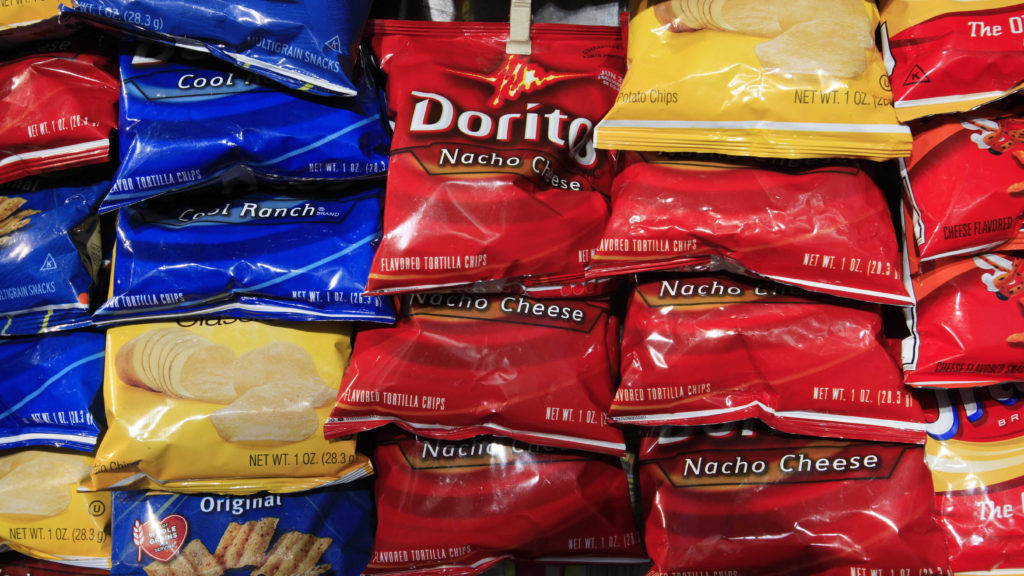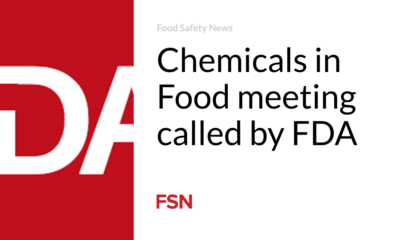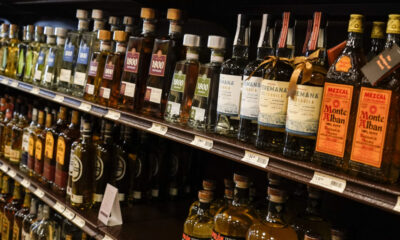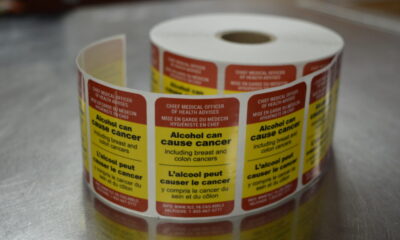Health
Billionaire vs. Big Food, plus cybersecurity, alcohol

Would you like to stay informed of health news? Sign up to receive our Morning Rounds newsletter in your inbox.
This morning we have some nice prize news. Yesterday my colleague and friend Jason Mast won the Evert Clark/Seth Payne Prize 2024for his reporting at the intersection of medical science, business and human lives. I asked Jason if there was a STAT story he was most proud of and he shared this heartbreaking story from last summer, when the first gene therapy was approved for four- and five-year-old boys with Duchenne Muscular Dystrophy.
We also learned that the great Usha Lee McFarling won this weekend AAJA’s excellence in science/environmental/health reporting award for stories about Asian American health disparities.
Why ransomware is ‘the Covid of cybersecurity’ in US hospitals
Earlier this year, Change Healthcare paid $22 million to ransomware hackers after a cyberattack wreaked havoc on the entire healthcare system and compromised private information of a “substantial portion” of Americans. And unfortunately for us, this was not an isolated event. Between 2016 and 2021, the number of such attacks in healthcare more than doubled.
The rising number of cyber incidents shows that patient care is at the mercy of the double-edged sword of technology, reports STAT’s Brittany Trang. She interviewed more than a dozen cybersecurity experts, current and former federal officials, researchers and hospital administrators to better understand how the health care system defends itself against cyber threats. One major problem: Decades of legislation have focused on keeping bad guys out of patient records, ignoring potential mechanisms to minimize harm if (when) systems fail.
Read more in STAT+ about how healthcare became a goldmine for hackers.
Billionaire Todd Wagner wants you to be angry about the food supply
Todd Wagner is probably best known as co-owner of Magnolia Pictures (responsible for hit films such as this year’s “Thelma” and 2009’s “Food, Inc”), along with entrepreneur and “Shark Tank” star Mark Cuban. But now he has a new venture: FoodFight USA, an advocacy group focused on ultra-processed foods that has the attention of some of the most powerful people in Washington. Wagner says he has already met with the White House, the FDA’s Robert Califf and dozens of members of Congress.
“I want people to get angry,” Wagner told STAT’s Nick Florko. “This is an indictment of food companies that have damaged our food supply.”
Nick sat down with Wagner for a wide-ranging interview about the food system, regulatory hurdles like the “widely considered safe” loophole, Hollywood and more. Read the interview.
$5 aspirin is just as good as a $300 injection. Why do people still get injections?
When the New England Journal of Medicine published a study showing that aspirin was as effective as injectable blood thinners in preventing life-threatening blood clots after surgery, the authors believed that hospitals would immediately change their practices to reflect the findings. Providing people with aspirin would improve health equity (it’s cheaper) and quality of life (pills > injections).
But that was last January and change was slow to come. In a new First Opion essay, those same physician-researchers argue that doctors should consider health care equity in decision-making, not just hospital policies and old habits.
“Not every change in medicine has to be a grand gesture,” they wrote. Read more about how small changes can have big consequences when it comes to fair healthcare.
How drinking habits affected mortality among the elderly
Older adults who drink more are at greater risk of death than those who drink only occasionally, according to a study published yesterday in The Guardian magazine JAMA network opened. People whose drinking was categorized as risky by the study (based on the number of grams consumed per day) showed higher all-cause, cancer and cardiovascular mortality. But even low-risk drinking was associated with higher mortality when people also faced health-related or socioeconomic risk factors.
The findings are based on data from the British Biobank of more than 135,000 people over 60 who drink. A preference for wine and drinking only during meals was found to be associated with a smaller increased mortality risk, but the authors write that more research is needed to determine whether those choices simply reflect a healthier lifestyle or other factors.
(Related: Earlier this summer, STAT’s Isa Cueto and Emory Parker wrote a major overview of U.S. drinking habits and how they affect our health.)
Is raw milk cheese safe to consume given the ongoing outbreak of H5N1 bird flu in dairy cows?
The FDA and the U.S. Department of Agriculture hoped to answer that question in a new round of testing of commercial dairy products, including butter, ice cream, pasteurized and unpasteurized cheeses purchased in multiple states. Of the 167 items purchased, 23 were raw milk cheeses purchased in Idaho, Minnesota, Ohio, North Carolina and Texas.
Only one newly placed preprint (a study yet to be published) reports that the authorities are still unable to provide a definitive answer, because none of the raw milk cheeses purchased tested positive for the virus. It is believed that some of the processes involved in making raw milk cheeses would likely kill the virus. For example, FDA rules require raw milk cheeses sold across state lines to be aged for a minimum of 60 days. “Because there was no evidence of virus in the cheese, we cannot draw conclusions about whether current 60-day ripening requirements are sufficient to inactivate viable virus,” the FDA and USDA authors said, adding that more research is needed. finished. Evidence of the virus was found in some cheeses made with pasteurized milk, but additional testing revealed it was an inactivated virus.
— Helen Branswell
ICYMI: Three MDMA papers have been withdrawn due to data integrity concerns
Over the weekend we learned that the journal Psychopharmacology has retracted three articles on MDMA-assisted psychotherapy – just days after the FDA rejected the closely watched PTSD treatment.
The withdrawals were due to “protocol violations amounting to unethical conduct,” especially during a Phase 2 trial at the research site in Canada, according to Psychopharmacology. On this site, an unlicensed therapist was accused of sexual assault by a trial participant in civil court.
Read more in STAT+ by Meghana Keshavan.
What we read
-
Dozens of pregnant women, some of whom are bleeding or in labor, are being turned away from emergency rooms despite federal law. AP
-
You lost weight by taking new anti-obesity drugs. What happens when you stop? New York Times
- Noah Lyles’ Collapse With Covid: How Not To Manage Health At The Olympics, STAT
- ‘Terrified’: Nurses and residents face rampant violence in dementia care facilities KFF Health News
- Nurse started working in the hospital during World War II and never stopped. She is 97, WashingtonPost









